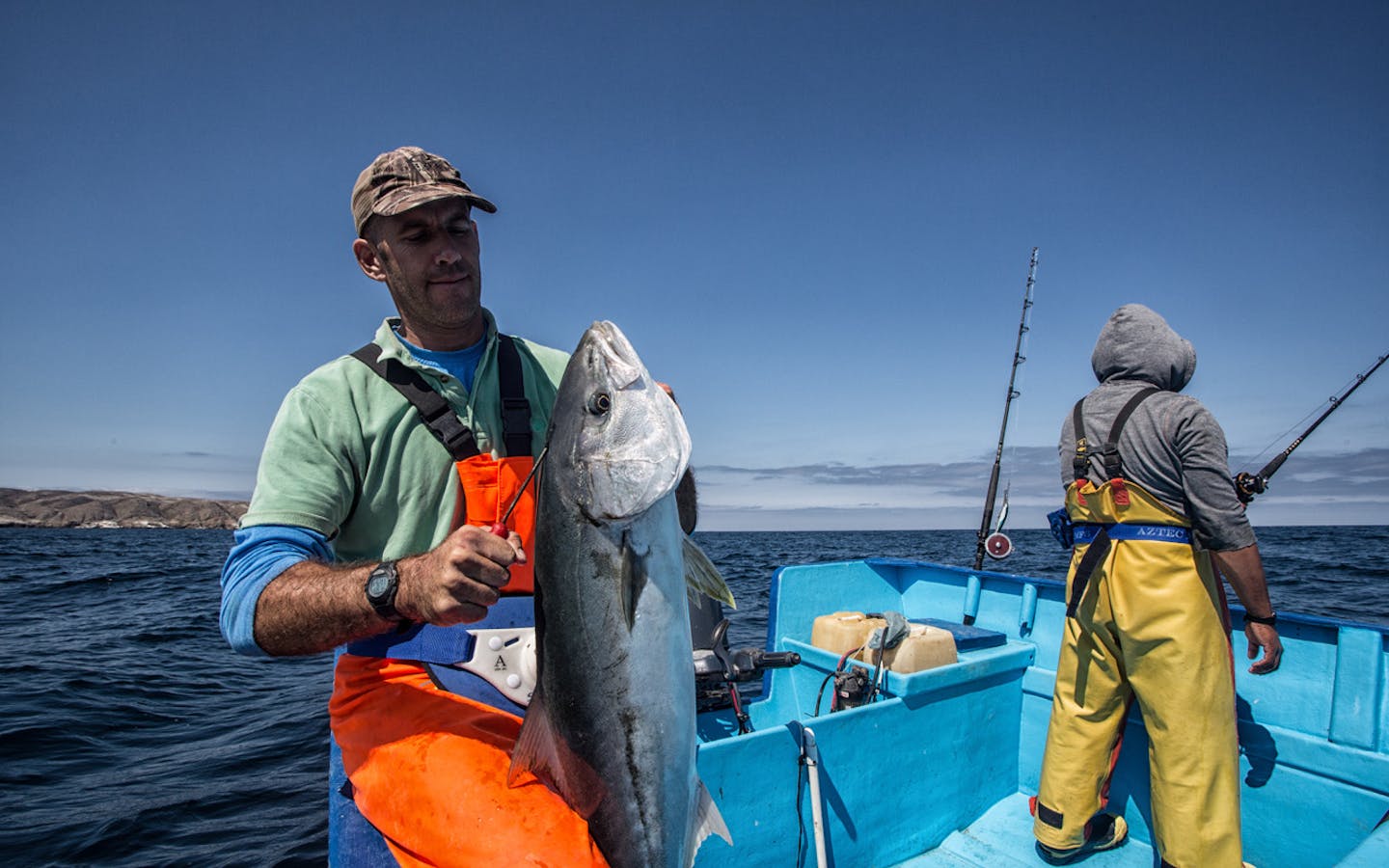By Sophie Bertazzo
June 1, 2017
Editor’s note: The discovery in 2015 of rampant human rights violations in the global seafood industry sparked an effort to put a stop to it. A Conservation International special report, “A sea change for seafood?,” details how a new framework — published today in the journal Science — could transform the industry. Read the main story in our special report here.
If anyone knows what has to happen to make seafood sustainable, it’s Hoyt Peckham.
Peckham, president of the Smartfish Group, sees a major social issue plaguing the seafood industry, especially in developing nations: the absence of “good intermediaries” that bring fishers’ sustainable seafood to market. In particular, as he puts it, “it’s difficult to find intermediaries to move sustainably caught fish with what we consider two fundamentals of good business: transparency and traceability.”
Peckham started Smartfish, a social enterprise that helps create new markets for sustainable seafood and artisanal fishers in Mexico, to reward small-scale fishers for improving their social and environmental sustainability by helping them improve their catch, handling, processing and business practices.
For Peckham, fishers already making the long-term investment in sustainability need particular help in the short-term, which is where Smartfish — and the framework — fit in.
“Fishers deserve to know where their fish goes and who makes money off it. And consumers should be able to know exactly what their fish is, where it’s from, and how it was caught in order to ensure that it was responsibly caught and sourced — essentially that it’s free of fraud, slavery, bycatch and overfishing, among other issues.” Social responsibility, he said, “goes beyond slavery — it incorporates all aspects of the lives and livelihoods of fishers, which in turn affect and are affected by every aspect of the seafood sector.”
Peckham crossed paths with Jack Kittinger of Conservation International while working with small-scale fishers on sustainable practices — and joined Kittinger’s work on the framework to “try to codify some of the best practices.”
Peckham knows best practices.

Luis Ángel Aripez Camacho and the SCPP Buzos y Pescadores fishing co-operative fish so responsibly that their yellowtail is Best Choice ranked by Monterey Bay Aquarium’s Seafood Watch and is favored by many of Mexico’s most distinguished chefs.
In northwestern Mexico, the team at Smartfish works with a handful of fishing cooperatives that offer some of the most socially progressive benefits to members of any other cooperatives in the world. “There are about a dozen fishing cooperatives that have been running for 80 years, each with over 100 members. They offer substantial benefits, providing many basic services for their isolated communities, including roads, water, electricity and education — some cooperatives even educate the children of members through university and grad school. The fishers have pensions, health insurance and life insurance.”
Despite all of these benefits, these co-ops all face the same critical issue: Access to better markets. Due to their isolation, lack of market information and an inability among consumers to differentiate “truly responsible seafood,” these fishers aren’t earning the profits they could or should be earning. Without better market access, the full-scale, self-sustaining social benefits they’ve been providing to their members for nearly 100 years will become impossible to maintain.
This is where the framework comes in.
“By codifying social responsibility for sustainable fishing practices, we can use the framework to identify problems — where people and/or their rights are being compromised — and share solutions — where people have developed truly just ways of working together.
“These co-ops are already doing the work in terms of social equity and responsibility, and they’ve made long-term investments into the marine ecosystems they depend on through their sustainable practices,” Peckham said. “With this framework, we can say to the fishers: Now it’s your turn.”
Sophie Bertazzo is a staff writer at Conservation International.




